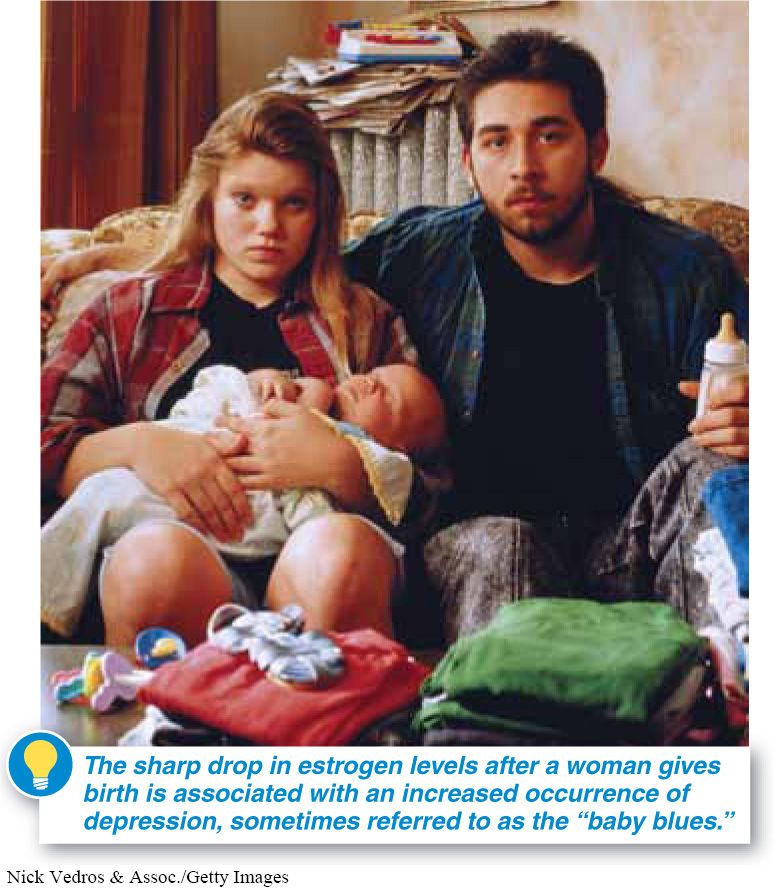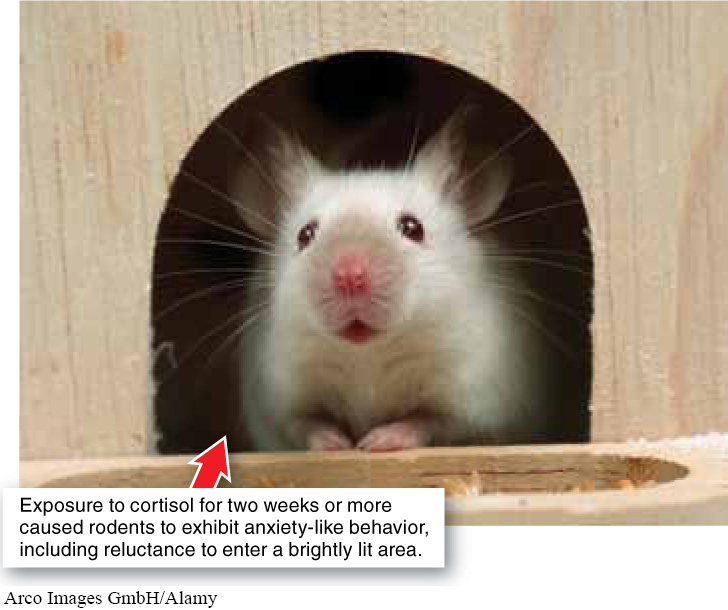
In a randomized, controlled, double-
Not only do hormones affect our physical traits and performance, they can also influence how we feel. Many hormones have pronounced effects on moods, defined as relatively long-
Estrogen In women, the levels of estrogen in the bloodstream change throughout life. And the incidence of depression follows a similar pattern. The large increases in estrogen levels at puberty, the sharp drop-
Interestingly, researchers investigating the effect of hormones on mood discovered that women exposed to a male partner’s semen during sex rated their mood as happier than those using condoms. The effect is believed to be a consequence of the mood-
Testosterone Many studies have demonstrated a link between testosterone and mood in human males, including increased self-
Several studies on competitive male athletes have documented that testosterone levels—

How can the exhilaration of watching your favorite team win a game resemble the feeling you get from winning a sports contest yourself?
Recent studies reveal that sports fans share in this biological “victory dance.” Measurements of testosterone levels in male fans of Brazilian and Italian soccer teams during World Cup finals (and replicated in fans of a college basketball team) revealed that the testosterone levels of the fans of the winning team rose, but not those of the losing team.
986

Melatonin In randomized, controlled, double-
Cortisol The majority of individuals suffering from Cushing’s disease, a condition in which the adrenal glands release unusually large amounts of cortisol, experience depression and anxiety. Also, an atypically high number of individuals treated with cortisone (a chemical variant of cortisol) to reduce tissue inflammation suffer from anxiety and depression. As a consequence of these observations, researchers conducted a controlled study exposing rodents to cortisol in their drinking water. Two weeks or more of cortisol exposure caused the animals to take significantly longer to emerge from small, dark compartments into a brightly lit area—
TAKE-HOME MESSAGE 24.7
Many hormones, including estrogen, testosterone, melatonin, and cortisol, have pronounced effects on moods.
Why do some women have bouts of depression at the beginning of puberty, after giving birth, or at the onset of menopause?
This occurs because levels of estrogen in the bloodstream change throughout a woman's life. Increases in estrogen levels at the onset of puberty, the sharp drop-off in estrogen levels after a woman gives birth, and reduced estrogen levels at the onset of menopause all can trigger depression. The effects vary from woman to woman based on environmental as well as genetic factors.
987